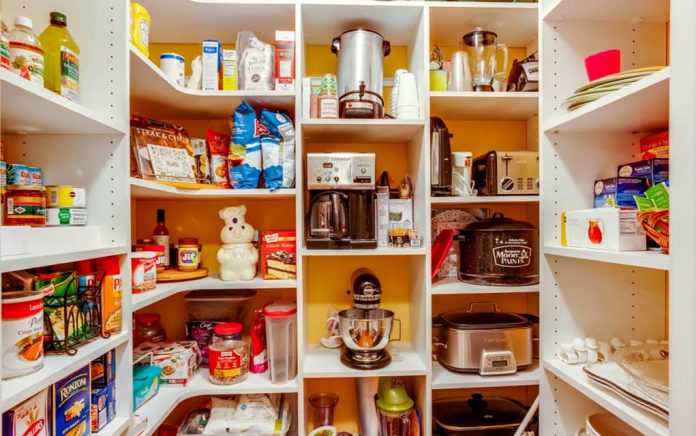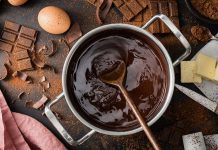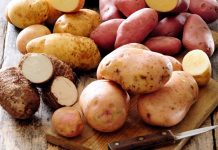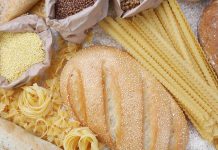
(AscendHealthy.com) – We don’t always know when an emergency might crop up. So, why not keep healthy, non-perishable foods on hand as a backup for inclement weather or natural disasters? Read on for 10 healthier choices for shelf-stable foods every pantry should have.
1. Beans and Legumes, Dried or Canned
Dried beans and legumes are inexpensive and easy to keep in your pantry. They’re also packed with vitamins and nutrients, including protein, folate, magnesium, iron and zinc. Because they are a source of resistant starch, they rank low on the glycemic index, making them a good option for diabetics. At a minimum, you need water, seasoning and a heat source to prepare them. Canned versions are also great shelf-stable items. Having both bags and cans of beans and legumes might help supplement meals with protein if you can’t get out to the store for meat.
2. Shelf-Stable, Non-dairy Milk
Shelf-stable, powdered, non-dairy milk will allow you to add milk to coffee or tea, but you can also mix it with water to drink, use on cereal (another staple to consider adding to the pantry) or to use in cooking. Cans of evaporated or coconut milk are great for your arsenal as well. Powdered and canned milks provide a source of calcium, vitamin B6, vitamin B12, vitamin A, phosphorous, magnesium and vitamin D.
3. Dried Fruits and Vegetables
Once dehydrated, fruits and vegetables can be kept shelf-stable in air-tight containers for much longer than regular veggies and fruits. They make great snacks, but they can also be reconstituted to use in recipes. Because they are dehydrated, they pack more fiber, vitamins, minerals and antioxidants into a serving size. If you are concerned about additives, consider dehydrating your own fruits and vegetables or check labels when you purchase.
4. Soup
Canned or boxed soups allow variety and nutrition. They can be added to other ingredients to make casseroles or other recipes or eaten by themselves for a quick meal. Most varieties are shelf-stable for at least a year. Look for canned brands that reduce sodium and boost vegetable content.
5. Granola Bars (Wrapped in Foil)
Foil will keep granola bars fresh longer, so look for varieties with foil-wrapped packaging. Many brands pack a powerful punch of nutrition in a small size. Because they are small and lightweight, they are frequent favorites of backpackers and hikers. What granola bars lack in size, many brands make up for in nutrition. Look for brands that reduce sugars in favor of proteins and fiber. If the primary ingredients are nuts, berries, fruits and grains, you’re probably on the right track.
6. Jerky
You can’t go wrong with jerky. Chicken, beef, elk and other types of jerky are all great for putting in your pantry and saving for those moments when you can’t store frozen or refrigerated meats due to electricity being down. Jerky can be stored in pouches in the cabinet until you need that punch of protein. These dried meats can be rehydrated and added to recipes, but be careful of sodium content and use them sparingly. Jerkies are great sources of protein, zinc, vitamin B12 and other B vitamins, iron and copper.
7. Dried Grains
Rice, oats, barley, quinoa, polenta and more can all be stored dry in the pantry and you only need water to cook them. You can make cereal for breakfast and rice or grits for lunch or dinner. Grains, especially whole grains, can add nutrition and bulk to meals and help fill bellies without adding preservatives or sodium to the mix. If you want to add some variety, consider adding wild rice, bulgur, and whole rye to the pantry. Whole grains provide fiber, B vitamins, protein and antioxidants to your diet.
8. Nuts
Packed with protein and fat, a handful of nuts can give you the energy you need to keep going. They are also great sources of omega-3 and -6 fatty acids, vitamin E, magnesium and fiber. They are easy to store and can last several years unopened in the pantry. Raw nuts and varieties roasted without salt are better for cooking and for overall health.
9. Seeds
Sesame seeds, sunflower seeds, chia seeds and others are easy to store and pack a superfood powerful punch of nutrition. They are full of fiber, healthy fats, and protein as well as minerals and vitamins. Chia seeds can make a good breakfast cereal used with shelf-stable milk. Other seeds are good for snacking or adding to dishes for some texture and variety. Ideally, opt for choices without added salt or sugar.
10. Canned Vegetables and Fruits
Canned fruits and vegetables have the benefit of being non-perishable. They make it easier to add more variety and nutrition to meals. Consider purchasing them on sale and stocking up. Choose brands that minimize their additions of salt, high fructose corn syrup and sugar to keep your choices as healthy as possible.
Staying well-stocked for an emergency takes a little careful planning. It may simply be a matter of keeping pantry items in stock, just in case, and restocking foods to keep things fresh, but follow this guide to have healthy shelf-stable options available. These ten types of foods will provide nutritional needs in a pinch without loading on bad fats, preservatives or sodium.
~Here’s to Your Healthy Ascension
Copyright 2023, AscendHealthy.com




















